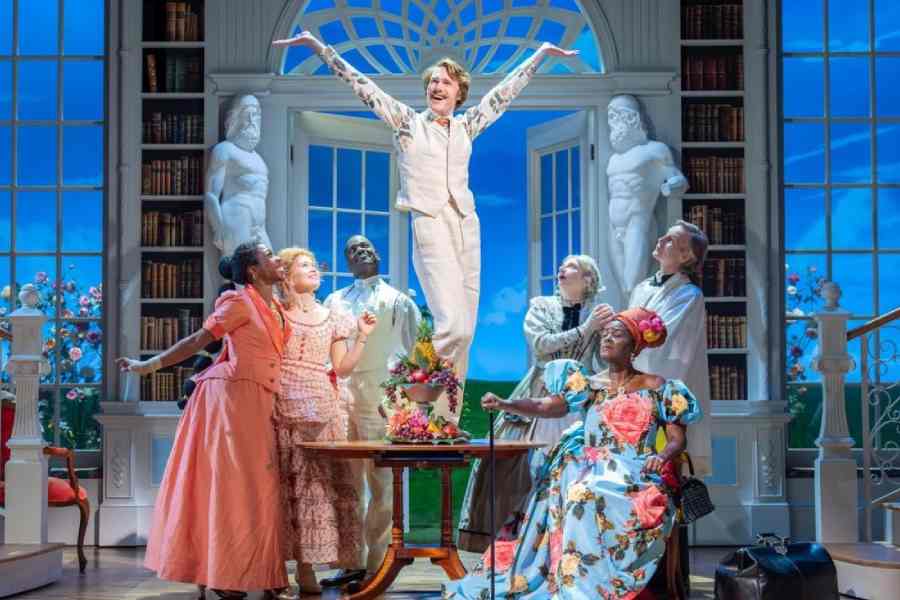Perfect fit
Oscar Wilde’s The Importance of Being Earnest, first staged in 1895, with its focus on cucumber sandwiches, snobbery, class, society and the marriage market, is perfect for India. I have just seen a riotous new production at the National Theatre with black actors cast in the key roles of Algernon Moncrieff (played by the current Doctor Who, Ncuti Gatwa), Lady Bracknell and her daughter, Gwendolen Fairfax. When Lady Bracknell interrogates Earnest (Jack) Worthing about his marriage credentials, I immediately thought of the opening line in Vikram Seth’s A Suitable Boy when Mrs Rupa Mehra tells her daughter: “You too will marry a boy I choose.”
When Lady Bracknell discovers Earnest (Jack) proposing to Gwendolen, she admonishes her daughter: “Pardon me, you are not engaged to anyone. When you do become engaged to someone, I, or your father... will inform you of the fact. An engagement should come on a young girl as a surprise, pleasant or unpleasant, as the case may be. It is hardly a matter that she could be allowed to arrange for herself.” Indians in the audience tittered when Miss Prism told her pupil, Cecily Cardew: “Cecily, you will read your Political Economy in my absence. The chapter on the fall of the rupee you may omit. It is somewhat too sensational.”
Desi thriller
Sooner or later, viewers in India will get to see the BBC’s new crime drama, Virdee, which tells the tale of a Sikh police officer, Detective Chief Inspector Hardeep (“Harry”) Virdee, who marries a Muslim woman, Saima, as a result of which they are disowned by their respective communities.
The six-part series, filmed in Bradford, is based on City of Sinners, a crime novel by the Indian-origin author, AA Dhand. To ensure the cultural nuances were not mangled, the BBC agreed to let the Yorkshire born and bred author write the screenplay and help produce the drama. This is the first time British TV has experimented with a crime drama with mainly Asian characters. The opening of the novel is nothing if not gripping: “DCI Harry Virdee stared up the body. Suspended high in the air by a noose around her neck, she hung from the rafters of Bradford’s most beautiful bookshop. She was naked except for a red headscarf wrapped around her face, the decorative detail glistening in the early morning gloom. The quiet was marred only by the stifled cries of the manager, who had already identified one of her members of staff, Usma Khan.”
Right to die
The House of Commons has voted 330-275 in favour of the terminally ill adults (end of life) bill. If it becomes law after undergoing scrutiny in committee stages, many other countries may be tempted to follow Britain’s example.
What I have noticed is that in hospitals, where beds are invariably short, doctors do often exercise the power over life and death. When my 88-year-old uncle was taken to hospital, a consultant told me bluntly that if his heart failed, “we will not resuscitate him — we will let nature take its course”. In the event, my uncle did die three weeks later. But in other cases, I get the feeling, doctors do “help nature to take its course”.
The Labour leader, Kim Leadbeater, who introduced the private members bill, told the Commons of the plight of patients denied assisted dying. “Warwick,” she said, “was married to his wife Ann for nearly 40 years. She had terminal peritoneal cancer, which meant that she could not breathe properly. She spent four days gasping and choking... She eventually died of suffocation. She had begged Warwick to end her life, but as he stood over her with a pillow he could not do what she asked as he did not want that to be her final memory of him.” But I was struck by the admission made by another Labour MP, Dr Simon Opher, a general practitioner for 30 years: “A lot of patients who are dying of cancer ask whether we can curtail their life and finish it a bit early... We have been discussing giving a double dose of morphine. I think that almost all doctors in terminal care have probably done this — doubled the dose of morphine knowing that it might curtail the patient’s life. This is a big fudge.”
Green fingers
Sheila Das, daughter of an Indian father and an English mother, is starting a top job next month as the National Trust’s head of gardens and parks. She will have overall responsibility for the trust’s 220 plus gardens, 750 gardeners and 12 regional gardening advisers. Das has been at the Royal Horticultural Society’s garden at Wisley in Surrey since 2015 as garden manager for education, edibles, seed and well-being.
The trust has drawn up a list of 28 of its must-see properties, including Powis Castle in Wales, which is linked to Robert Clive, and Kedleston Hall, home of Lord Curzon, the viceroy of India. Right-wing politicians and commentators have attacked the trust for publishing a report which revealed “at least 229 landed estates were purchased in Britain by those who had made their fortune either as employees of the East India Company or as independent merchants in India between 1700 and 1850. Among the properties now cared for by the National Trust, at least 50 have a connection to the company.”










